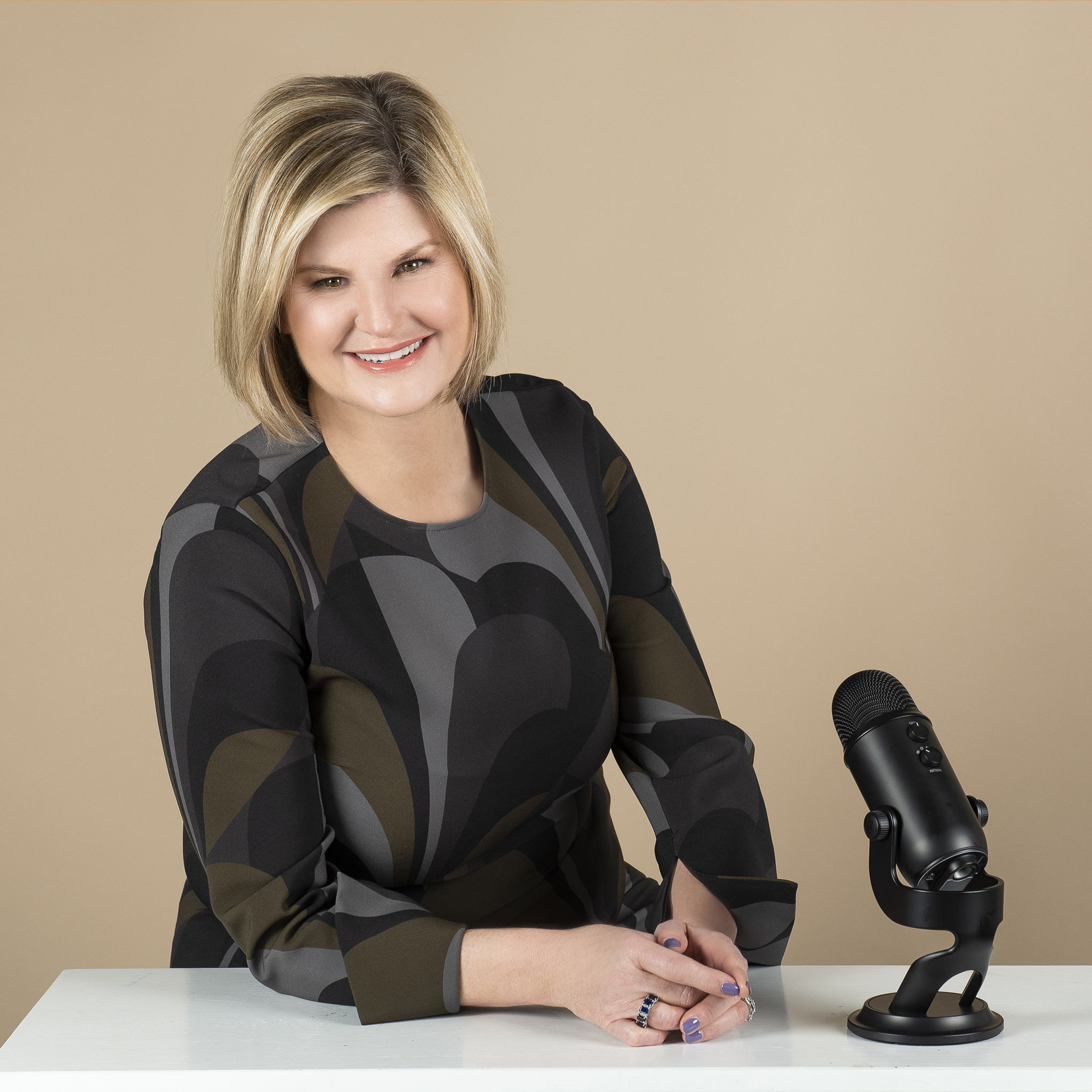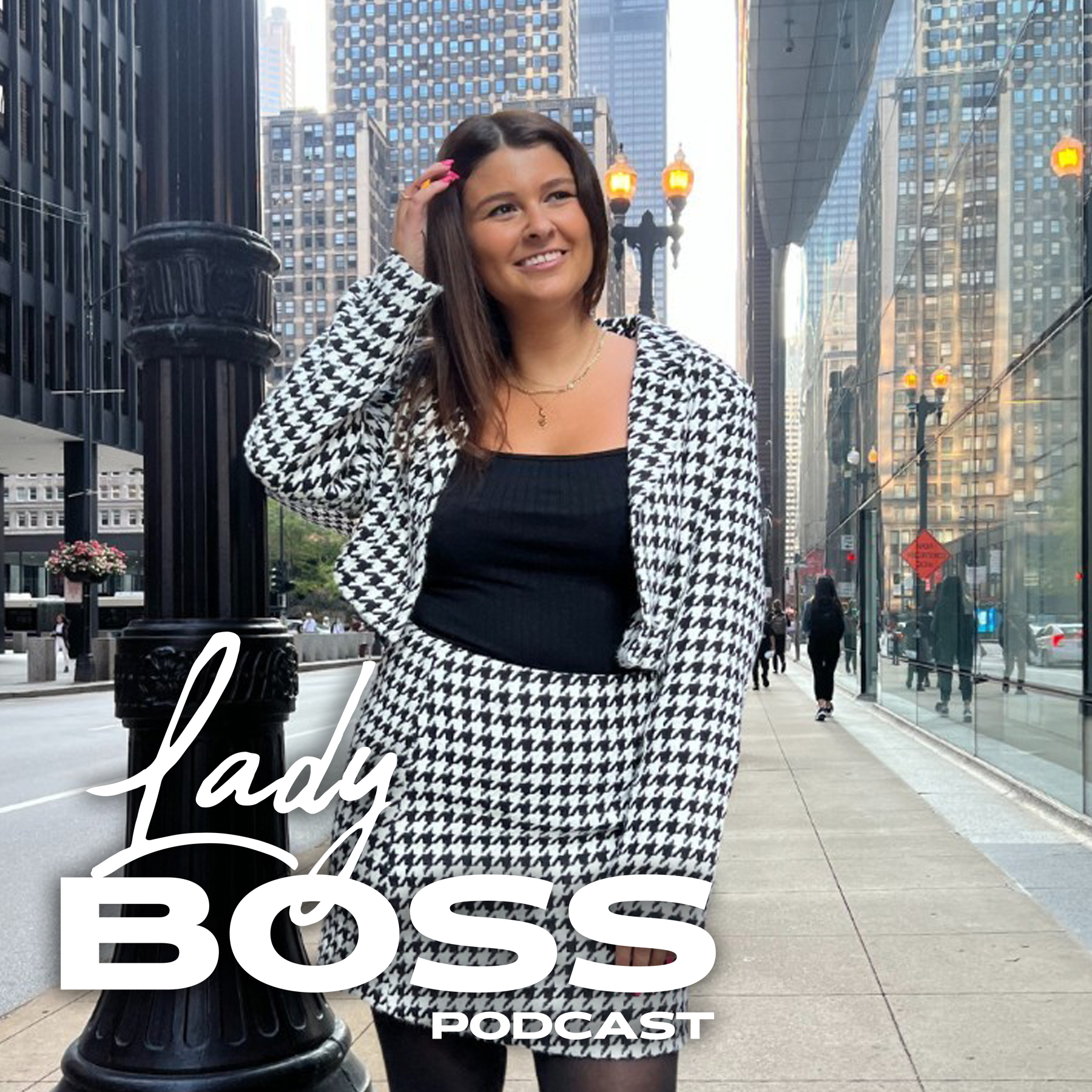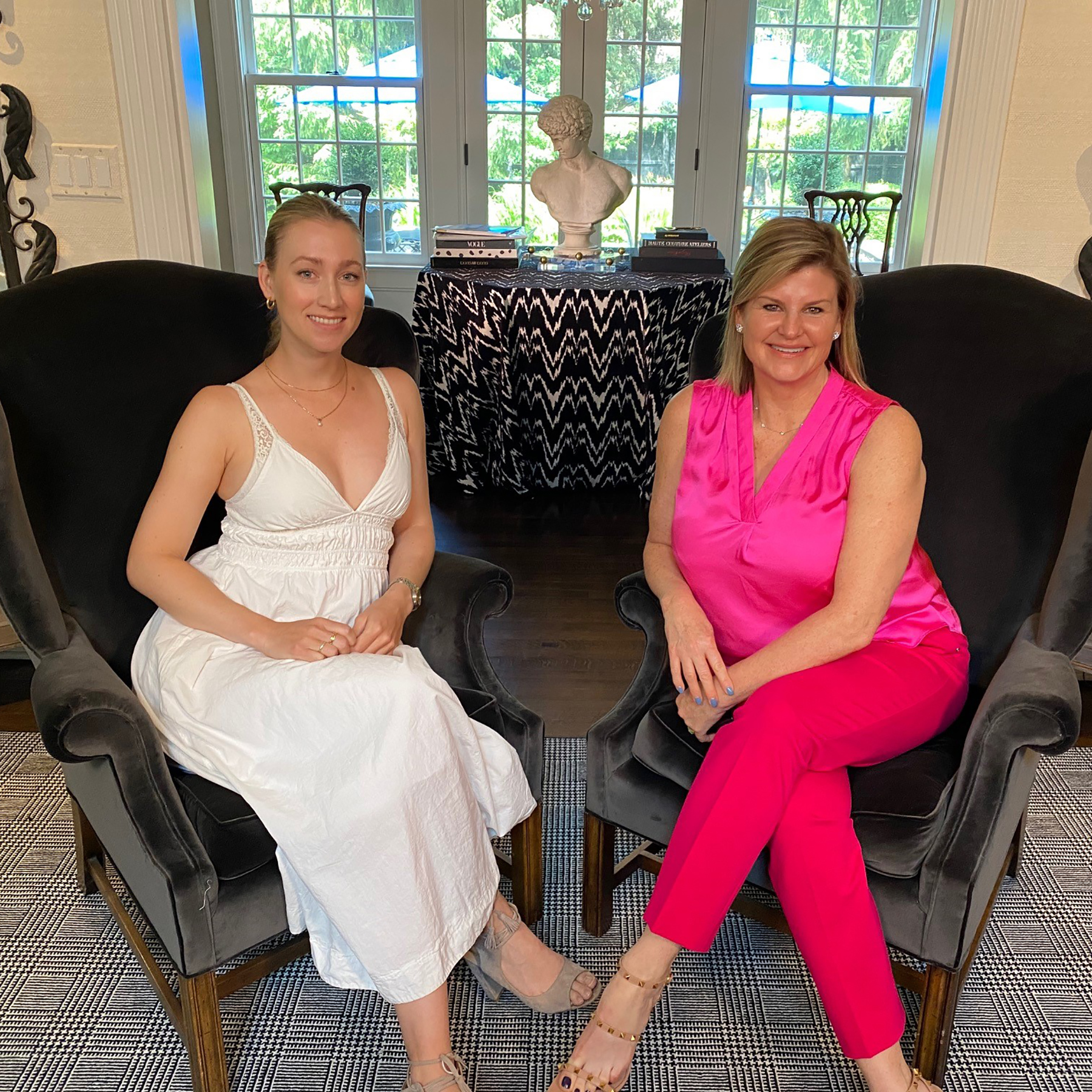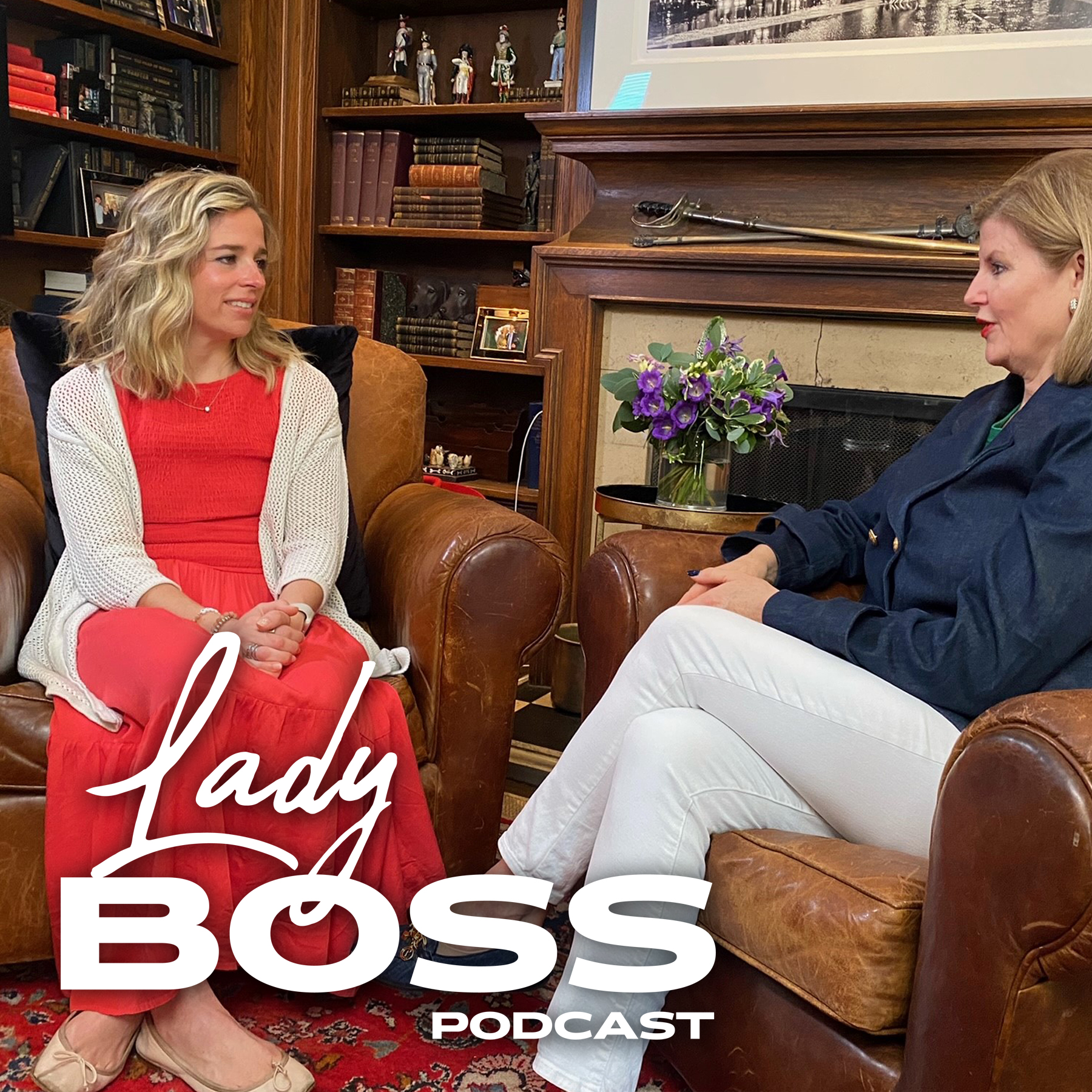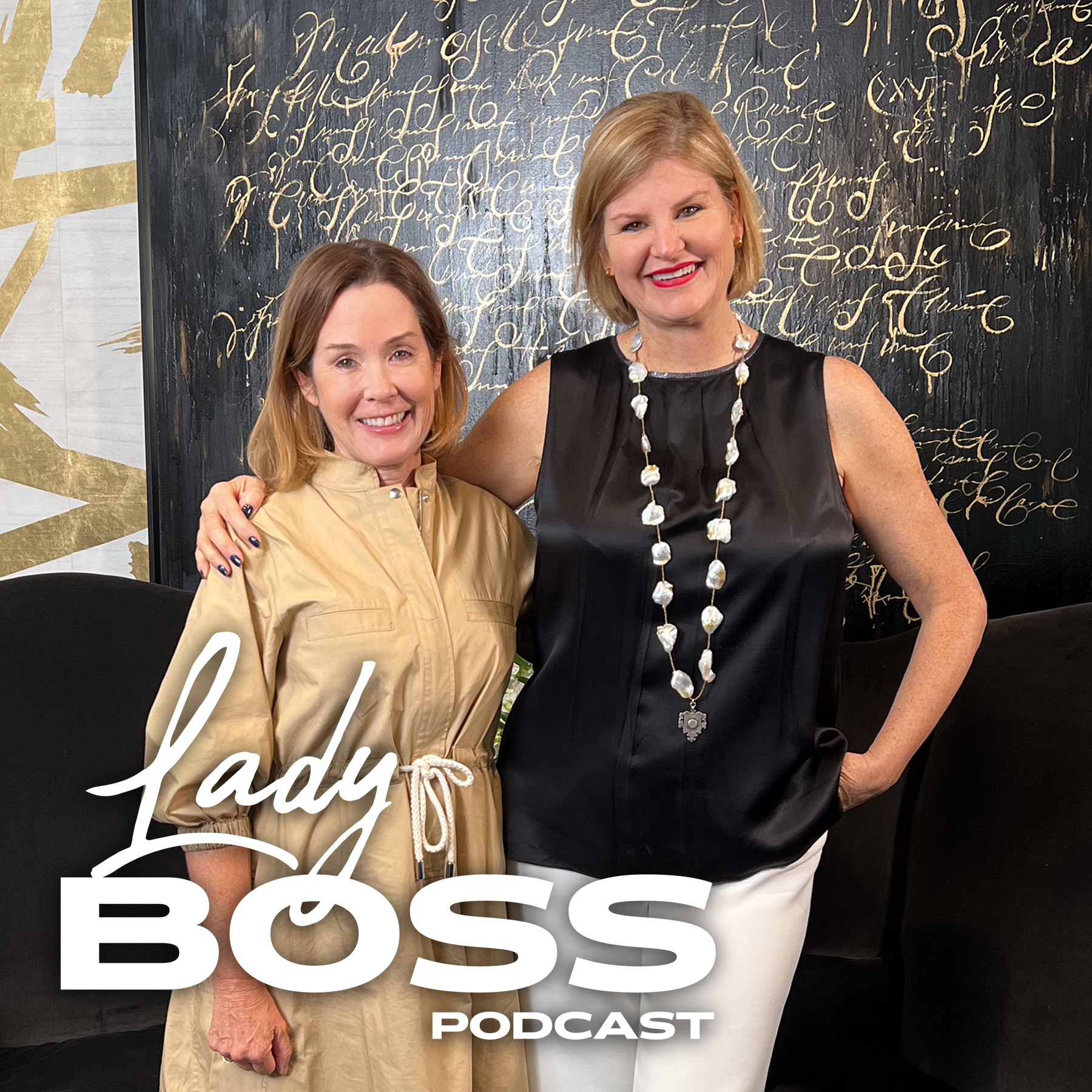Episode Transcript
[00:00:00] Speaker A: They say wisdom comes with age. But on today's episode of Lady Boss, we meet 29 year old Kira Kessler, who saved her family's business and took it from rock to riches.
[00:00:10] Speaker B: Oh, Kira, I'm so excited to sit with you. It's not often that I get to talk to second generation business owners, and you are that.
Tell me what it's like to work with your parents.
[00:00:21] Speaker C: I think sometimes it is the best thing in the world. Then sometimes we want to kill each other. But that is the nature of a family business. There's always ups and downs. But I feel blessed that I get to do this. It's kept us really close, even though I'm getting older, graduated from college. They were always scared that we wouldn't be close anymore after I went off to school. And it is quite the opposite. We're closer than ever, if not a.
[00:00:43] Speaker B: Little too close, and then compounded with your sibling. So is that your only sibling, your brother?
[00:00:49] Speaker C: Yes. So my brother is about 18 months younger than me. He is now my co CEO of the company, which at first, when he joined, I was still young, and I was like, this is my thing. I started. But you know what? It has been the best blessing, because we really balance each other out in terms of skill set. I'm the creative, really excited one. He's rational and understands what it really takes to make a business successful. So I think we balance each other perfectly.
[00:01:16] Speaker B: Okay, but outside of the fact that your parents probably talked a little shop at night at the dinner table, what did you do to get good at business? Because you're pretty darn young.
[00:01:26] Speaker C: Yeah. So I always knew from a young age that I wanted to do something in fashion. I always had that kind of entrepreneurial spirit. Probably growing up, going to my dad's record store. We used to call it Camp CD City over the summer, and really, from as young as, like, eight to ten years old, I would make BOOKMARKS and sell them for a quarter at the store. And then I had a jewelry business and so on and so forth. But I've always been a problem solver. And my dad, as the CD store started to decline, he would get really depressed. And it was a hard thing to watch growing up and seeing that our primary source of income for our family was failing. And I've always been a problem solver, so I'm like, we can't just sit there and hope that someone walks through the front door. So I was pressuring him, let's do something. Let's bring in clothes. And at the time, I worked at.
[00:02:15] Speaker B: Free People, which you're young, you're in high school.
[00:02:18] Speaker C: I was 15 at the time.
[00:02:20] Speaker B: And you're coaching your dad on how to solve his business problems.
[00:02:23] Speaker C: In a way, yeah, because I think we're different generations, and my dad has always been pretty adverse to change if I had a dollar for every time he said, well, it's worked for 20 years. Why do we have to change it now? But we did have to change it. And I think over the years, I gained that trust from him that I actually knew what I was talking about. So, yeah, I was a top seller at Free People, and one day it hit me like, why am I doing this for this massive company when I could be doing it for my own family?
So that was, I guess, when it first started off. We didn't have any money. We were actually $90,000 in debt when we first started the company from trying to keep the CD store running.
So I started an instagram. It was this brand new app at the time that no one had heard of.
[00:03:08] Speaker B: So what year are we now?
[00:03:10] Speaker C: Probably 2016. When I first started the Instagram, we were still operating out of CD City, which, to give you some perspective, this was in a strip mall behind a big awning. You could barely even see the place, and so there just wasn't traffic. And he would sit there all day and be so upset when no one would walk in. And I'm like, we have to do something. So started the Instagram, started ordering some clothes, and started taking pictures of my friends. In high school, I remember we set up a green screen in my friend's mom's house foyer and just started taking pictures, and it started to grow from there. It was really that word of mouth marketing. And a few years down the line, everybody knew somebody who had modeled for Rock and Rags or been on the Instagram, and it became a really coveted thing. So once we started to see some traction from bringing in clothes, I really had to convince them, we need to take a leap of faith. We can't keep running a clothing store called CD City. It just doesn't make sense. My parents met at a record store. So this was their whole life. I mean, they literally they both worked at a record store. That was how they got together. He went to Northwestern. My dad, he was going to do premed, decided, no, I'm going to open a music store. I want to be a rock star. And that has always been what motivated him, was this desire to be in music, to play music. He still has a band that he plays in with my mom at 70 years old, which is crazy. Saturday, June band.
And so that was always his key motivation.
And then I always loved fashion, and so I thought, how can we bring the two together? And it was actually my mom's idea to call it Rock and Rags. And for a couple of years, it was like this pipe dream, like, oh, we'll have Rock and Rags. Everything will be great. And he didn't believe it, but turns out things paid off.
[00:04:51] Speaker B: So how much of the business is through your ecommerce channel?
[00:04:56] Speaker C: It really varies. By the season, I'd say as low as 50% and up to 70%. But now that we have a second location, it's starting to even out more, I would say. The stores are very seasonal. When people go off to college, which is a large portion of our demographic, they slow down. Summer is crazy for us. All the breaks are crazy for us.
[00:05:17] Speaker B: Okay? And so if you think about your e commerce versus your bricks and like, what's your marketing strategy look like? Different to drive people to the store versus driving them to the site?
[00:05:29] Speaker C: I think that there's overlaps and of course, there's key differentiators. One thing that I've always taken with me from the CD City days is the importance of relationships. My dad was able to stay in business at CD City for probably five years, longer than he should have. No one was buying music, but they came there because they trusted him. They loved him as a person, and they wanted to support him. And so we've taken those same tenants with us about the way that you treat people. And so that's part of what has made our in store so successful, is that we recognize you when you walk in the door. We know your name, we're genuinely excited to have you there. But how do you do that online through social media when it's through a screen?
So that's been one challenge for sure, is like, how do you prove that you really genuinely care about your customers and stand out from the other businesses? And so for me, I've kind of had to get personal and actually put my face on the stories. And I remember during COVID we had to close our store, still had to pay rent, still had to pay our full time employees. And so I'm like, what do we do? I wound up coming into the store, getting on the stories and trying on every single outfit that we would get in. I was suddenly not just the CEO, but the model, the spokesperson, everything. And it was scary, but then it was really rewarding. I remember after COVID, we were back on the street and someone approached me in our town and said, Yakira, you helped me get through COVID. Like, I would look forward to your stories every day and just getting to hear from you. And so I realized that people like the human element, even though it's online, they like vulnerability. They like you to be real. They like you to share your insecurities. Because I think we're so used to brands being so perfect and polished all the time and wanting to fit into this cookie cutter mold. And I really want to be the opposite of that, that come as you are. You can be self conscious. You can not have your confidence yet. And this is the place where we'll help you find it just as you are, without having to edit your body, put on makeup, do anything like that. Just come as you are, and you'll be accepted. And I think that is why we've been so successful is with those tenets that contrast from the Victoria's secrets of the world and the world I grew up in, where you had to be this stick thin, cookie cutter person in order to be considered beautiful. I want to show people that it's the opposite of that. And so online and through our social media, to this day, I've never hired a model, ever. It's only people that I meet organically from walking in the store, at the farmers market, at parties, and you just.
[00:08:00] Speaker B: Approach them and ask them to be a model 100%.
[00:08:03] Speaker C: And it makes their day. It's exciting for them because it's an authentic, real connection. It's people that inspire us. And even as we've grown over the years, now we have ambassadors all over the country who are people that have just reached out to us on Instagram, want to work with the brand. So we just started our third semester of Rock and Rags University, which is our campus ambassador program. So I have 50 college ambassadors at schools around the country that are representing our brand creating content. And I just had a meeting with them the other day, and I said, listen, I don't want you guys editing your photos, editing your bodies. I don't want you to feel like you need to put on ten layers of makeup to be featured on our page. You just post as you are, be who you are, and that's who we want featured, because we chose you because of who you are and because you inspire us as you are.
[00:08:51] Speaker B: Okay, you've talked about affiliate marketing. You've talked about social marketing. You talked about, like, bricks and mortar. You've talked about all these things. Did you go to business school?
[00:09:02] Speaker C: So I did. So when I was senior in high school is when we really went full steam ahead on Rock and Rags. That's when we went to Vegas. We picked out clothes at the buying show for the first time. We had no money, and we walked into a lot of those booths, and people looked us up and down, and they were like, no, we're not selling to you. And so that was a challenge. I had to figure out, all right, how am I going to get great clothing into the store? When people didn't trust us big brands, they didn't know who we were. So I did. I went off to business school, but the whole time I was posting on Instagram every single day. So my friends it's funny, they still will remind me. I remember we'd all be going out to the frat parties, and you'd be sitting at home in your dorm room, like, posting away. I'd be doing it during my bathroom breaks of school. And then even after college, I moved to New York. I did buying for Macy's. I worked for a digital marketing agency. There's many posts done from the bathroom and many tears from the hallways when stuff would go wrong.
But having to push through that was definitely built some character and helped me know that we could be successful.
[00:10:07] Speaker B: And how do you define success?
[00:10:10] Speaker C: I think success is two pronged. Obviously, being profitable and being able to support your business is important, but also for me, on a more personal level, being able to have a positive impact on people's lives and our customers. And there's just been countless stories of girls who've come in in a pivotal point in their life. Maybe they're going off to college and rushing a sorority, or going to their first school dance or whatever it may be, and they can be really timid walking around the store. There's many fitting room mental breakdowns that happen at stores around the country. And for us to be able to pick you back up and put you in an outfit that really makes you feel good and make you feel like you can walk into a room and conquer it, that, to me, is success.
[00:10:49] Speaker B: How many employees do you have?
[00:10:50] Speaker C: So we have five full time employees. We have two full time store managers, my brother and I, and then three full time team members, but then probably have twelve to 15 part time at each store. We have an internship program that's been going on for a couple of years now that has probably twelve girls each semester in it, plus the Campus Ambassadors, which technically aren't employees. But when you stack it all up, it's probably close to 50 part time employees on the payroll.
[00:11:19] Speaker B: And how do you scale? I mean, you are the brand, the CEO, the creative director, but how have you scaled all these tenants that you have?
[00:11:29] Speaker C: I think it's definitely been a challenge because it is so personal, and I like to have a hand in everything. I have had to teach myself to not be such a control freak and relinquish a little bit of that control. But I think the online has really helped. Now we're able to reach such a larger portion of the United States. And not just that, but the world. And social media has really been the catalyst to this. So going into 2020, we wanted to launch the online store, and we wanted to do it by Black Friday 2019. Couldn't do it. I wanted to get us to ten K Instagram followers by 2020. Couldn't do it. I'm freaking out. I'm feeling like I'm a failure. We had started posting on this new app, TikTok, that we had heard from somebody that posting on TikTok now is like investing in Apple in the 80s. Who wouldn't want to do that? And I have to give my brother credit. He's the one that made us get on it. We probably posted 50 videos before one of them finally popped. And that literally changed everything for us. So we were probably seven, eight years in. At that time, I think we had 5000 email subscribers. We had less than ten K Instagram subscribers, our followers. Virtually overnight, it started rolling in. We went from 5000 to 50,000 email subscribers because the website was just a locked home page. All you could do was put your email and be notified when it went live. Instagram went to ten K, so on and so forth, with thousands of DMs coming in from TikTokers wanting to collaborate. And it really spread like wildfire from there. At that time, I was still living in New York, working a full time job, and that was when I realized it was time to move home and do what year is full time? This is January 6, 2020. And the website went live January 26, 2020. So within this 20 days between going viral, everything changed. And when we first launched the website again, we were balling on a budget. We had six units of every piece that we put, which is such a joke now, in retrospect, but we sold out of almost everything the first day, and we still didn't really have enough money to buy what we needed to in order to have that correct amount of inventory. But that's when it went back to the relationships.
[00:13:43] Speaker B: Kira this has been such a treat for me. I talk to so many entrepreneurs every day, whether on the show or people calling for advice, and I just find over and over that most people are just totally full of shit. They just don't know their business. They won't admit when things aren't right, and they don't have a path forward. And I find all that completely the opposite with you. So if I had to boil down what I think I just heard, I think, number one, you talk about relationships are key, which I'm a huge proponent of.
You may have heard on one of my stories that the first business I built and sold was my competitor, who introduced me to the company that acquired us. So that really talks to the level of relationships. I believe in. Two, financial management. You've talked multiple times about kind of the driver, your dad's declining business being something that motivate you, and then being in debt and then crawling out of debt. So, margin management and financial management. You know your business, you know your numbers, and that you defined as your number one thing of determining success, which is important.
And then three, I would say the multichannels. You've got the interns, the ambassadors, the website, the multiple stores at a second store, all parts of multiple revenue streams, which to me, is another key to success that people really need to think about.
Anything else that you want to add that you think is really a key? Tenet, I haven't mentioned I think that.
[00:15:13] Speaker C: You summed it up pretty well. I also think it's really important to note, like, it sounds really pretty and shiny from the outside, but it's not all sunshine and rainbows. There has been a lot of blood, sweat and tears that have gone into this over the years, especially starting it at such a young age. Going viral sounds amazing. It's beautiful. But the bigger you get, the more haters you're going to get, the more people that are trolling your comments. No matter how positive and great you want to be, there's always going to be somebody negative and somebody that has something mean to say. And at first, I took that really to heart. There was a lot of years of crying in the bathroom at Macy's or the hallway at my marketing agency. And over time, I realized that nobody is going to know your true intentions except for you. And all you can do is try to operate ethically and with the best purpose and trying to make a positive impact on people and take it or leave it. If people want to cheer you on and be a part of it, amazing. And if they want to hate, then thank you for the engagement. That's telling the algorithm to show my content to more people.
[00:16:18] Speaker B: Kira there's so many people on the North Shore, especially where we are, where they're women and they're smart women, and they might have a great brand, maybe a better brand than both of ours, but they don't have passion and they don't have a financial need. Your parents gave you the biggest gift they could have ever given you, which was not everything.
Absolutely. I mean, your parents did amazing when they raised you. And the fact that I saw my parents and I saw my dad bankrupt a business because he overextended himself in his entrepreneurial career and I think it was a big driver. I had no safety net. I knew I had to earn and I wanted all this. I didn't want to have played the scarcity role and live in a studio my whole life. So the fact that you understand money is no surprise. You only understand it when you realize there's not an ever abundant money tree at your door. And parents disconnect on that so often. They give their kids and they give their kids and they give their kids and they give their kids until the kids don't understand money. So I'm blown away by you. I think you should go out for, like, Forbes 30 under 30.
[00:17:29] Speaker C: I would love that. That would be a dream. But yeah, I mean, failure was not an option. So if that meant late nights, if that meant missing out on what my friends were doing and having to be at home writing business plans and planning Instagram feeds or doing whatever it may be, then that's what I was going to do. And I think one thing that I've been able to take away that I think other young people should know is that if you know what you want to do with your life, then get other jobs that are going to teach you those skills instead of putting all of your eggs in this one entrepreneurial basket. Because I knew from the age of 15 I wanted to have a store and an online store, but I still went out and worked for Macy's. I worked for this digital marketing agency because I knew I'd have to know how to be a buyer. I knew I would probably have to know how to run ads in order to drive traffic to the website. But I would way rather learn on someone else's dime and make mistakes for these big companies than accidentally adding an extra zero to the ad budget and draining my bank account, which has happened not for us, but when I worked at the agency. Those are the kind of mistakes that you make. And so if you can learn on someone else's dime and then you'll know when it's time to leave and to do your own thing full time.
[00:18:39] Speaker B: Are entrepreneurs born or made?
[00:18:42] Speaker C: I think for me, I was born. I've always had it since I was a young girl from the lemonade stand. But I also think they can be made from the things that you learn along the way. But I always knew from as long as I could remember that I was going to be a business owner, I was going to do this, and my brother is really the same way. And so when you bring that together, the two of us, it's made for a recipe for success. So far.
[00:19:07] Speaker B: Oh, my God. What does the word grind mean to you?
[00:19:10] Speaker C: It's nonstop. I think it's like, perseverance. And I think that the biggest misconception for our business and for other businesses is that it happened overnight. Oh, you guys posted a couple of TikToks, you went viral and suddenly you're a multimillion dollar business. But nobody knows all of the nights and weekends and posting outside of parties and all of the stuff that went on behind the scenes. And I look at my old MacBooks, my old Google Accounts, and there is just folders upon folders of inspiration and ideas and business plans. It was really eight years in the making of all the things that I was doing that nobody saw, that there was no real reward, that at any time you could get frustrated and give up. But I realized that when it starts to feel like you're working so hard and it's never going to pay off, that's usually about when you're going to break through and something's really going to change. And that's what happened for us. But I still am reminded by my old friends, like, hey, do you remember all the time that you put in, like, sitting in your bed or in your dorm room or in your sorority house before it actually took off in order to make this happen. And I am grateful for that. So, to me, that's the grind is like working when you're not seeing the results and the payoff. It's easy to keep going when you're seeing hundreds of $1,000 come in through shopify or through your business. But what about when there's nothing? Or when it's slow, or when nobody sees all the work that you're putting in? I think you have to have it in yourself to keep going.
[00:20:40] Speaker B: I'm on the verge of tears. I don't often get inspired these days. And you are the real deal.
[00:20:46] Speaker C: Thank you.
[00:20:47] Speaker B: Like, so good.
